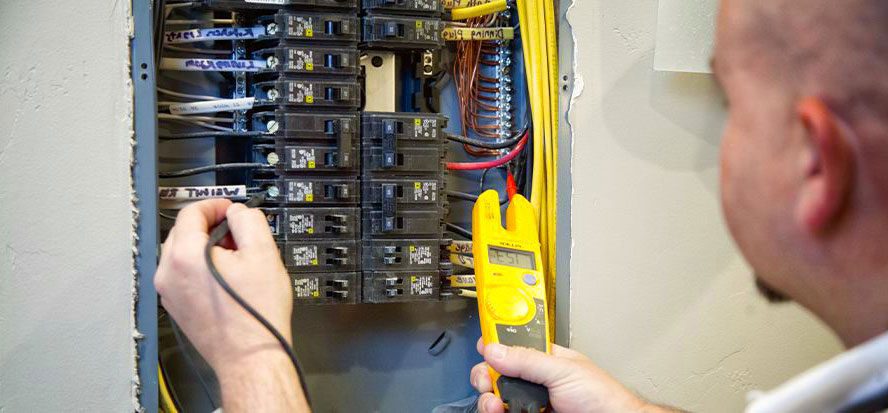Your lights turn on. Your appliances work. Your electrical system must be in tip-top shape, right? Not necessarily. Your home’s circuitry may hold certain hazards that only a trained expert can identify. That’s why you should have your home’s electrical system inspected at least semi-annually.
Here’s what an inspection could reveal.
Aluminum Wiring
Most homes built today are wired with copper. It’s durable, an excellent conductor, and it’s easy to bend. But older homes depended on aluminum wiring — not the best choice in retrospect. The U.S. Consumer Product Safety Commission estimates that homes with aluminum wiring are 55 times more likely to have electrical fires.
It’s not that all aluminum wiring is bad, but homes built in the 60s and 70s used a specific type of aluminum wiring that contains an alloy that proved hazardous. This type of aluminum expands and contracts, which causes the connections between the switches and outlets to fail.
The good news is that a whole-house rewire may not be necessary. In some cases, an electrician can make modifications to the wiring to make it safer.
An Electrical Panel from Federal Pacific Electric or Zinsco
In addition to distributing power to your home’s circuits, an electrical panel plays a vital role in your safety. It cuts off the power when it detects a circuit overload. A panel that fails to do this is hazardous.
That’s the problem with panels manufactured by Federal Pacific Electric and Zinsco. Federal Pacific Electric Stab-Lok panels were the cause of thousands of home fires in the 1980s. Likewise, Zinsco’s product was prone to melt. Yikes!
An electrician can inspect your panel to determine the make, model, and overall condition.
An Electrical Panel With Low Amperage
Homes built in the 60s and 70s had electrical panels designed to power a few appliances, keep the lights on, and little more. It was a simpler time. These days, we have hot tubs, Sub Zero refrigerators, high-end cooking ranges, big-screen TVs, and a plethora of devices.
Many older single-family homes have 70 amp panels. That’s not going to cut it anymore, especially if you’re adding a new power-hungry appliance or building an addition. When a circuit draws more power than a panel can provide, breakers will frequently trip. Upgrade to a 100 or 200 amp panel for more reliable power.
Turn to the Pros at HedgeHog Electric
An electrical home inspection may also go over other crucially important areas to your safety and the performance of your home’s systems. This may include verifying that your GFCI and AFCI outlets are in good working order, checking for electrocution and shock hazards, and ensuring that smoke and carbon monoxide detectors function. At the end of an inspection, you’ll receive a report detailing your home’s items that need attention. Don’t leave anything to chance. Schedule your electrical inspection with HedgeHog Electric today by calling (866) 605-2113.


